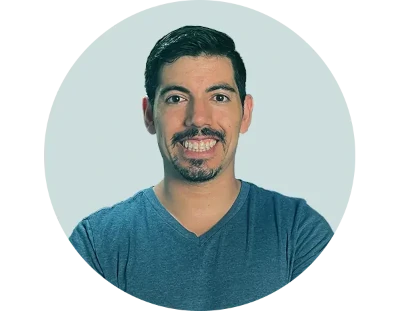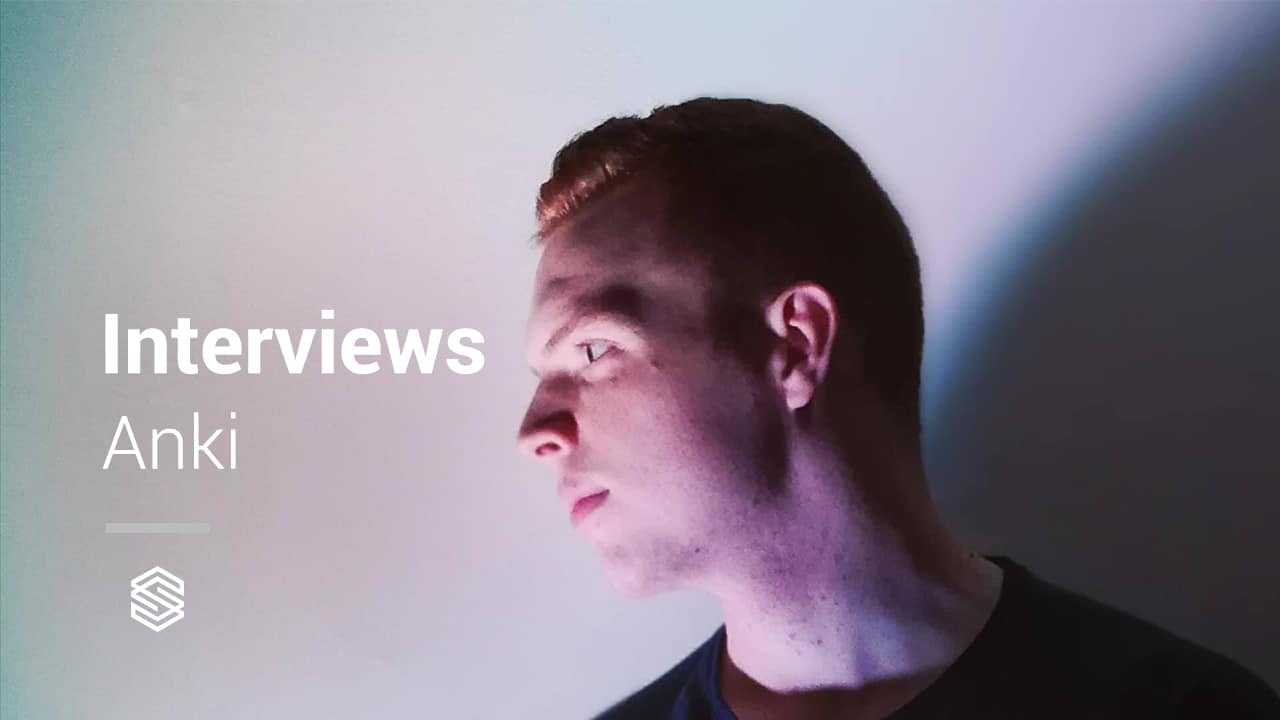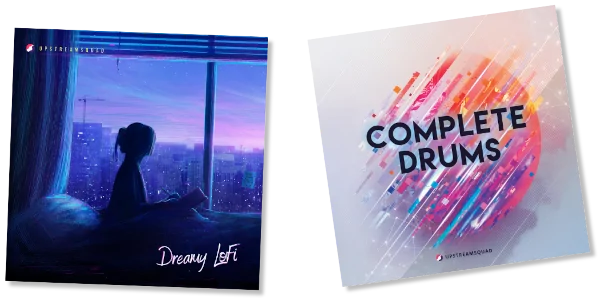What drew you into making music? Were there any specific musicians or non musicians that influenced you in the beginning?
I’ve been making music in one way or another all my life. I picked up the saxophone nearly 20 years ago. I just absolutely loved it from such a young age! When I was 13 I got my first guitar and absolutely fell in love with bands like Guns N Roses, Black Label Society, and Avenged Sevenfold. I slowly progressing to the heavier side of things before finding myself falling headfirst into the most extreme end of things with bands like Meshuggah, Necrophagist and Cynic. Throughout my teens I would just endlessly play guitar and write riffs inspired by whatever I had listened to that day, that’s where I really learned to love the creative process of refining a song and finding out what works and what doesn’t.
I got into electronic music through bands like The Prodigy and Pendulum. Hearing elements I knew and recognized mashed in with these amazing new electronic sounds really helped me transition into finding out more about the scene. Around this time Dubstep really started blowing up and I tried to play around with making those “wobble basses” on my guitar, but with out any luck. I started to play around with production software in my colleges music department trying to recreate some of those sounds, but I had no idea what I was doing. I would just press any button I saw trying to work out what they all did to the sound! That’s really where it all started, messing around with software. I had no idea about how to develop sounds, but I had more fun than I could even imagine trying to do it. Over that summer, I lost myself in teaching myself everything I could about production and made an alias and just released whatever I could!
Mixing
How do you mix your tracks? What does this process look like Do you mix as you go? Are there specific decibel ranges that you aim for with the certain elements in your track? Do you start with setting volume ranges, then move on to EQing?
So I almost always mix as I write. I look at it like keeping your house tidy every day so you never have to do a big arduous spring clean! Generally, when it comes to mixing, I base a lot of my mental check marks against my drums. Usually when making a track with a big full section, I run my kick and claps very hot (loud in the mix). I work on sound designing them and getting them to a point where I’m happy with the tone and feel of them. Wherever they’re peaking I tell myself “That’s the loudest sound of this section, nothing overrides that”. While that may change towards the end of the writing process for tonal reasons, I always find that just setting that benchmark in my mind really helps to shape my sound as I go rather than just leaving it in a big mess for me to tidy at the end!
In terms of workflow, I EQ as I go, but it’s always quite cursory and functional: high pass anything that doesn’t need low end, get rid of nasty resonances, small sound design boosts and cuts etc. Then at the end of a project I look to see if there are any elements fighting for space in particular frequencies and go back in with a fine tooth comb to do some more surgical cuts.
Plugins
What are your go-to effects and processing chains at the moment?
It’s always completely dependent on the track and style. This always changes, but there’s always a few mainstays. For example, at the moment I love bussing all my cymbals together and running them through the Softube Tsar-1A reverb, set to bright on a very short decay, followed by a Kuassa EVE AT4 EQ which has a lovely high shelf boost option. This really helps them pop and keep them all in their own space.
Another that I’m really favoring at the moment is running the stock Reason phaser into a Scream 4 tape distortion unit on everything above 600Hz-ish. With some interesting automation and work you can get some CRAZY bass tones out of that.
In terms of favorire processing units, shout out to Synapse DR-1 Deep Reverb and Softube Saturator Knob. Both are used extensively throughout my work. They are very simple but very versatile devices that are incredible for keeping your workflow smooth.
General
How do you get past a creative block in the studio?
A lot of different ways! There’s an amazing talk by Mick Gordon on how he composed the DOOM soundtrack that has a wonderful mantra that always sticks with me.
“Change the process, Change the outcome.”
Sometimes sitting at the same screen with the same instruments, patches, samples etc. is just not going to spark off creativity. Work on changing that process. Find something interesting to record with your microphone and process it using devices you’ve never used before, pick up an instrument you’re not comfortable with and see what you can get out of it, challenge yourself to write a genre you’ve never done before. Changing up the way you approach writing a song can lead to so many more interesting moments.
Is there a technique or two that you consistently use when producing tracks? If so, what are they?
Double tracking my guitar and vocals is very common, alongside utilizing weird octave stacking with things like atmosphere and backing elements. Stacking an octave above in bigger sections and an octave below in more subdued ones. For bass tones and weird glitches I do tend to resample a lot and pick my favorite sounds from long strings of bounces. Multi-band distortion and very resonant filter movements are key here!
A big technique that is used in all my songs is specifically targeting missing frequency regions through the use of a targeted bass patch. By just using a square wave layered with a triangle wave and slamming it hard into a filter with 36db of drive, you can get so many interesting overtones which creates a full sound. From there you can use the resonance on the filter to pick exactly which frequencies you want the bass to occupy with surgical precision, allowing you to plug the holes in your mix without having to try and tease it from other elements in your track that just don’t have those frequencies in the first place!
On top of that, never limit yourself to writing one style or feel. You’ll find yourself burning out fast! If you’re releasing music, keeping a consistent style is important, so try and write something you won’t release every day just to keep your chops fresh and your brain active. Every day I wake up and do 20-30 minutes of sound design drills. I find a random song on Spotify and recreate one motif and sound from it. Not only will you end up with a great library of sounds to pull into your main projects, but you will also begin to discover and appreciate wonderful new music that keeps inspiring you!
When you are at the finishing stages of your track, it always seems like you can take the track further and further. This often just leads to overproducing. How do you know when your track is done and what sorts of processing, arranging, and mixing do you do in these final stages?
This is a very common problem and something I definitely struggled with earlier in my career. In terms of knowing when your track is done, it can be a fine line to walk, but the most crucial thing is get good honest external feedback. So many people tend to stuff their tracks far too full with ideas as they feel like it’s boring. You tend to forget when writing that you’ve heard this song hundreds and hundreds of times and you have become desensitized to it. A new listener will have never heard it before. Remember to keep it simple, elevate and change elements every 4-8 bars, keep the focus on one main lead/vocal and work on making that shine rather than drowning it in worse ideas.
In terms of what I do at the final stages of my tracks, I always leave transition FX like short risers between phrases until the very end. If I can’t think of anything else to add to a track but them then I know I’ve reached the end. From there I take a day off and come back and honestly assess whether or not certain sections are needed. Is everything as concise and impactful as it could be? If the answer is yes, I move onto small mix fixes like EQing problem areas, mid/side processing, and then a very quick DIY master and done!
Writing
Your tracks are full of beautiful progressions and track defining leads. Are there any specific techniques that you use to get the emotion that you want out of these two musical parts?
Thank you! For me it comes very naturally as the Anki project really started as an outlet for a lot of emotions I didn’t know how to express. All the main motifs and chord progressions tend to just flood out when I’m feeling in a particular mood. However that’s only able to happen because I’ve developed such a big bank of knowledge about how certain chords make a listener feel, how certain melodic movements can affect the tone of your track. This also comes from analyzing all my favorite songs and working out exactly what chords I liked and how the melodies worked over them.
For me, working out the relationship between your harmony and melody is vital to creating something impactful. For example if you are in a minor key hearing the same basic 4 note lead of III, II, VII, V (3rd, 2nd, 7th, and 5th notes in the key) you will get a different sound and feel over every chord – each one imparts a certain feeling and emotional response. Putting a III chord under the elicits a sense of happiness and coming home. The IV chord is a very uneasy, unsettling chord that paints the lead in a very uncertain light. The V chord with a minor 3rd is a heartbreakingly yearning chord that just begs to be raised up to the VI, giving your melody a sudden sense of tension. My advice to anyone looking to really get to grips with how to tell a story via music is to go back and listen to your favorite songs that make you feel emotional and write down all the chord progressions and melody lines and look for patterns. Note how each chord or movement makes you feel and try using them in your own work to see if you can achieve the same result.
Aspiring producers these days lack patience. They want to produce the next big hit after they’ve only been producing for a short period of time and they get discouraged when the results aren’t immediately there. What motivated you to keep learning and improving through the beginning stages of your music career and what advice would you give to impatient producers.
Keep being impatient. Keep writing loads of music. Keep wanting that next big hit. But be aware that the next song you write will not be it. Nor will the next one. Or the one after that. This year by my count I’ve written 623 full songs in one way or another. Each song is a lesson to teach yourself, not everything you write has to be released. Write shit tons of music, yes, but take a step back and actually, honestly look at all the tracks you’ve made. Detatch yourself from the writing process and say, “Is this really the best thing I could make?” You’ll find that 90% of the time, the answer is a no. Write a lot, select carefully, and plan your releases.
With so much of the music sounding similar out there right now, how do you develop a signature sound that is true to you and expresses your own unique voice?
Be sincere. Be weird. Be out there. Take risks. You are nothing more than a big melting pot of your musical influences and your life experience. No one else will have your exact make up of songs you really love, moments in life that have affected you. Something I did when starting the Anki project was I just went through my whole iTunes and Spotify library and listened to every song (which took weeks admittedly!) and found one element in each that was my favortie thing about that particular song, wrote it down and then stuck that on my wall. What I found is that my heart instinctively latched on to a lot of common musical elements regardless of genre. For example, I found that I loved a Vb7 chord so much in a Carly Rae Jepsen song and had listed the exact same chord as my favorite thing from a Trivium song! Finding these elements that are personal to you and using them in your songwriting is so crucial to forging a sound that no one else will have!
On top of that, if you can play instruments or have access to a microphone to use your voice, then do it! Imparting that human element into your work is so important for forging a unique tone. Anki wouldn’t sound right without my guitar on every track as that’s the instrument that I can truly express things the best on!
A lot of your tracks contain very talented vocalists that deliver a very emotional performance that is aligned perfectly with your music. What does this collaboration process with the vocalist look like? Are you sending the vocalist ideas and then bouncing ideas back and forth?
It completely depends on the vocalist. Some, I trust implicitly to understand the emotional core of a song and deliver the goods, others I won’t know so well and will require some direction. For those vocalists I usually send a brief alongside the track, telling the vocalist the mindset I was in when writing, what I want the track to make a listener feel, and a few reference tracks that go for the same kind of tone. From there they’ll send me a draft back and we’ll keep iterating back and forth until it fits perfectly.
Marketing & Branding
In today’s music industry, building a dedicated fan base is important to the success of your career as an artist. Many artists starting out or even artist that have been releasing music for awhile struggle to grow an audience and reach a large number of people with their music. How did you grow your audience when you were first starting out and what advice you give artists looking to build a following?
It’s a hard struggle. One that can be immensely frustrating when you’re proud of what you’re making as well! For me, ToneDen was invaluable for growing my soundcloud base. Releasing music consistently as a free download for a follow really helped boost my audience. By far, the most important thing is to be making great music. From there, it’s all about being open with your music and sending it to a lot of people. Do your best to find producers of a similar calibre and style to you and reach out to them. Let them know you like their stuff. Build a family of people that can support you, repost you, and help you with your productions. Their fans will become your fans, their success your success. Don’t fixate on one avenue of success: yes I’m sure getting on Monstercat would be great for you, but don’t set that as your one and only goal.
For many producers finding an avenue to make money from their passion is a struggle. What are some ways that you were able to make money with your music in order to keep your career going?
It is a big struggle for sure! My number one piece of advice is to make sure that you sign up for a distributor and get all the music you are releasing on spotify ASAP! You never know when a song will blow up and get playlisted. This means consistent revenue for you that’ll help keep you going. If you’re making great music others will want to learn from you/work with you, so be open to those new experiences. For me setting myself as a self-employed musician has been tough but external work really saw me through the early days. I made a lot of sample packs for companies that I still receive royalties for today! On top of that I also teach students production over skype which has been a great regular source of income and something I really love doing, plus I often do external work for projects I find interesting when approached – TV and Film work is always fun, and I’m currently in talks for editing some music for a live electronic music theatre production! Make sure to broaden your horizons and work with as many people as possible, you never know where that next opportunity will come from!
What’s Next
What’s next for Anki? An EP, touring, an album?
I’m currently working on polishing up 2 LPs – one very special one that I’ve been working with a best friend and long time collaborator with for nearly 3 years and one solo one. Plus I’m finishing up some older singles and collaborations that’ll be out nice and soon! From there the plan is to tour whichever LP gets released first and come over to the states to party with you all!





